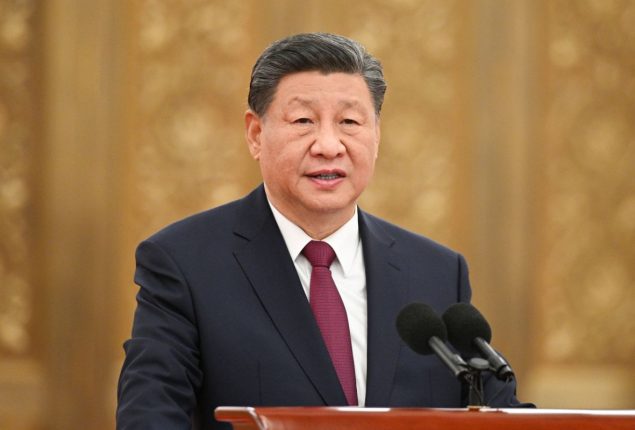Drone Strike Claims 3 US Troops at Jordan’s Tower 22
Drone hits Tower 22, 3 US troops killed, 30+ wounded. Biden vows...

China Challenges Human Rights Accusations?
In a comprehensive white paper released by the Chinese government, Beijing has addressed international criticism and accusations related to its human rights practices, particularly focusing on its counterterrorism measures in the sensitive Xinjiang province.
The document highlights China’s commitment to combating extremism while dismissing claims of genocide and human rights violations made by various nations, including the United States.
The white paper emphasizes that China, under President Xi Jinping’s leadership, has taken decisive actions against terrorism in Xinjiang since 2016, implementing strict measures to prevent the spread of violence and radicalization. These measures have, however, drawn severe criticism and sanctions from the international community, especially regarding the treatment of Uyghurs and other ethnic minorities.
According to the US Department of State’s report, allegations include forced sterilization, coerced abortions, and the enforcement of restrictive birth control policies, as well as instances of sexual and gender-based violence. Washington has gone as far as labeling China’s counterterrorism efforts as “genocide and crimes against humanity.”
China, in response, argues that its approach is a necessary response to the threat of terrorism and religious extremism. The white paper defines terrorism as acts involving violence, sabotage, or intimidation that create social panic, undermine public security, violate personal and property rights, or coerce state agencies for political, ideological, or other purposes.
To curb financial support for terrorism, Beijing has labeled it a “predicate crime of money laundering” and has implemented amendments to criminal procedure laws over the past decade. The government has also tightened control over social media, banning content related to terrorism and extremism.
Human Rights Watch, however, criticizes these anti-terrorism laws, viewing them as a means to justify repressive actions and grant security forces excessive power. The organization alleges that President Xi’s decade-plus in power has led to growing social control, negatively impacting China’s economy and society.
In contrast, Beijing contends that its lawful steps have maintained security and stability, punishing individuals involved in terrorist activities without violating international conventions and treaties. The white paper asserts that security agencies must obtain evidence without resorting to torture and highlights the protection of ethnic groups’ language rights during legal proceedings.
Despite international criticism, China insists on following an independent path of human rights development based on historical, cultural, and national values. The government claims success in eradicating poverty in Xinjiang and boosting economic development, citing a record number of tourists visiting the region in 2023.
China warns its critics against passing judgments and politicizing human rights issues, arguing that such actions hinder global efforts against terrorism. The white paper concludes with China expressing its willingness to cooperate on anti-terrorism measures but only on the basis of equality and respect.
Catch all the International News, Breaking News Event and Latest News Updates on The BOL News
Download The BOL News App to get the Daily News Update & Follow us on Google News.